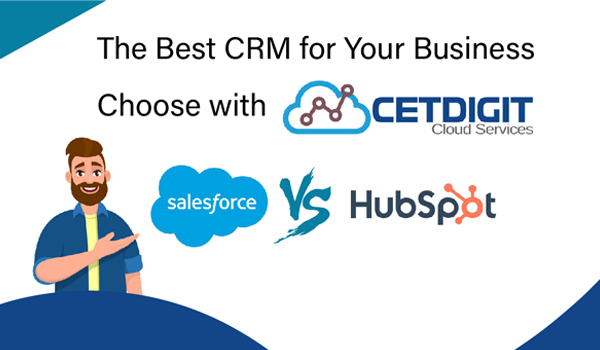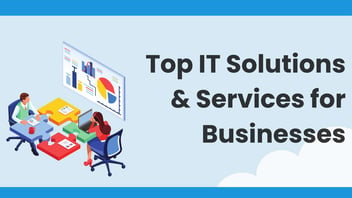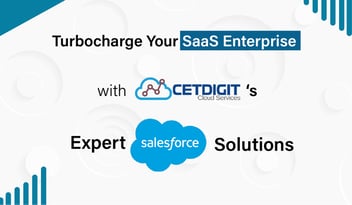Discover the key differences between Salesforce and HubSpot with CETDIGIT, a trusted consulting partner for over 10 years. Learn how to choose the best CRM platform for your unique business needs and how to leverage both platforms for maximum benefit. Reach out to CETDIGIT for expert advice and personalized consultations.
As a consulting partner for both Salesforce and HubSpot for over 10 years, CETDIGIT has successfully implemented over 400 projects for more than 200 clients. Our own business operations have also benefited from utilizing both platforms, giving us a unique perspective on their strengths and capabilities. One of the most common questions we receive is which platform is best for a particular business when to choose one over the other, or if it's possible to leverage both platforms in an integrated manner. In this blog post, we will provide you with valuable insights to help you make an informed decision, and as always, our team is available for personalized consultations.
Understanding Salesforce and HubSpot
Before diving into the comparison, it's essential to understand what each platform offers. Salesforce is a comprehensive CRM platform offering a wide range of solutions such as Sales Cloud, Service Cloud, Marketing Cloud, and Commerce Cloud. It is highly customizable and scalable, making it a popular choice for large enterprises.
HubSpot, on the other hand, is an all-in-one inbound marketing, sales, and customer service platform. It is known for its user-friendly interface, and it's particularly appealing to small and medium-sized businesses. HubSpot offers various tools such as a CRM, marketing automation, sales enablement, and customer service solutions.
Comparing Salesforce and HubSpot
1. Pricing and Scalability: Salesforce offers a variety of pricing plans for different business sizes and requirements, but its scalability and customizability come at a higher cost. HubSpot provides a more affordable and simplified pricing structure, with a free CRM and options to add on specific tools as needed.
2. Ease of Use: HubSpot is known for its user-friendly interface and ease of use, making it an excellent choice for businesses with limited technical resources. Salesforce, although highly customizable, requires more technical expertise for implementation and maintenance.
3. Customization and Integration: Salesforce offers a higher degree of customization and a vast ecosystem of integrations through its AppExchange marketplace. HubSpot, while offering some customization options, has a more limited range of integrations compared to Salesforce.
4. Support and Training: HubSpot offers comprehensive training resources and excellent support for its users. Salesforce provides a robust knowledge base and support, but some users may find it more challenging to navigate due to the platform's complexity.
Deciding Which Platform is Best for Your Business
When deciding between Salesforce and HubSpot, consider the following factors:
1. Your business size and requirements: For small to medium-sized businesses with limited resources and straightforward needs, HubSpot may be the better choice. Large enterprises with complex requirements and the need for extensive customization may find Salesforce more suitable.
2. Budget: Salesforce tends to be more expensive due to its extensive features and customizability. HubSpot offers a more budget-friendly solution for businesses with simpler needs.
3. Technical expertise: If your business has limited technical resources, HubSpot's user-friendly interface may be more appealing. For companies with a dedicated IT team, Salesforce's powerful customizability could be more advantageous.
4. Integration needs: Evaluate your current software and systems to determine the level of integration you require. Salesforce's extensive ecosystem may be more suitable for businesses with complex integration needs.
Leveraging Both Platforms
In some cases, businesses can benefit from using both platforms in an integrated manner. For example, you can use HubSpot for marketing automation and Salesforce for managing your sales pipeline and customer support. Integrating both platforms can provide a unified view of your customer data and enable seamless collaboration between your marketing, sales, and support teams.
Choosing the right CRM platform for your business is a crucial decision. Contact us at CETDIGIT, a trusted consulting partner for over a decade.
Salesforce vs HubSpot: Choose the Best CRM Platform with CETDIGIT.

Popular Post
- Nostalgia Marketing’s Power with Millennials & Gen Z
- Sales and Sales Development in 2024: Why AI is a Must-Have for Growth
- SaaS Founder's Bible: The Rise, Fall, and Future of SaaS (2020-2025)- Part 1: Navigating Market Shifts
- CETDIGIT's Innovative Approach to Salesforce & HubSpot CRM Implementation
- What is Salesforce CRM?
Subscribe
Similar Blogs

Top IT Solutions & Services for Businesses
Reliable IT functions as both a protective shell and powerful nervous system for any business in...
READ MORE
Turbocharge Your SaaS Business with CETDIGIT's Salesforce Solutions
Discover how CETDIGIT's expert Salesforce solutions can turbocharge your SaaS enterprise by...
READ MORE.jpg?width=352&name=Cetdigit%20Methodology%20(1).jpg)
CETDIGIT's Innovative Approach to Salesforce & HubSpot CRM Implementation
Navigating the complexities of CRM adoption, particularly with powerhouse platforms like Salesforce...
READ MORE
Leave a Comment